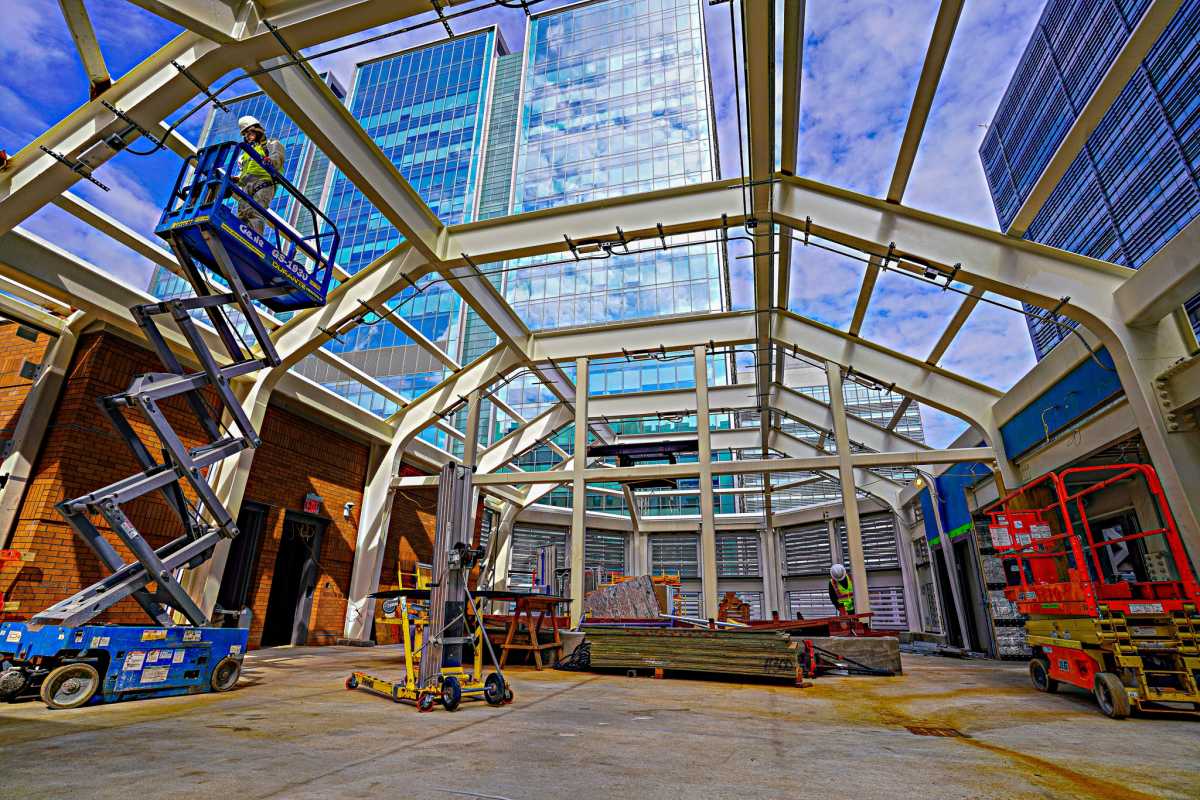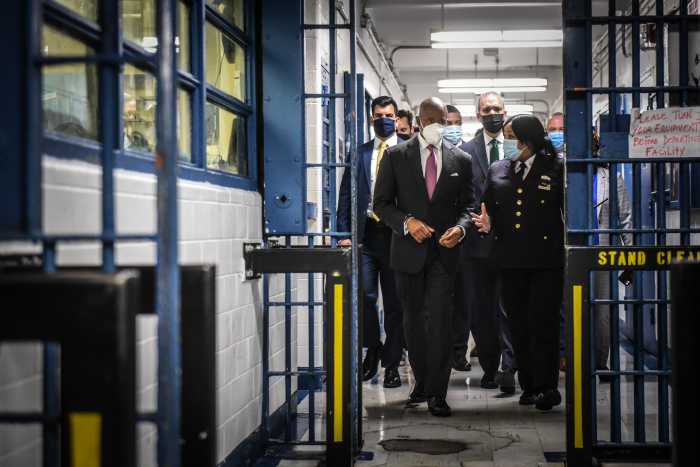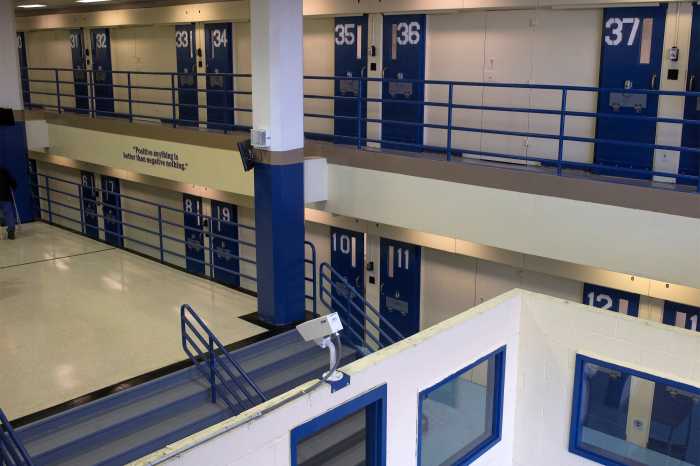Rikers Island is still on track to shut down in 2027, meaning that New York City not only needs to figure out how to detain alleged criminals but also how to care for sick and mentally ill inmates.
On Monday, Mayor Eric Adams, the Correction Department (DOC) and NYC Health + Hospitals revealed to amNewYork Metro on Monday how the city plans to do just that while also mulling over the proposed use for its space when its facilities are emptied.
According to DOC and NYC Health + Hospitals, people in custody who require serious medical treatment are laboriously transported from the island to a medical facility for treatment, putting a great strain on them — especially for those with terminal illnesses. The Adams administration is looking to avoid that in the future by green-lighting the construction of more than 350 therapeutic beds as part of a comprehensive ward inside several NYC hospitals.
A comprehensive look at Bellevue’s new ward
On March 4, amNewYork Metro was given an exclusive glimpse into the construction currently underway for one of these projects inside of Bellevue Hospital. According to Senior Vice President of NYC Health + Hospitals for Correctional Health Services Dr. Patsy Yang, the Bellevue location will serve about 104 patients who live with cancer, substance abuse disorders, and mental illness.
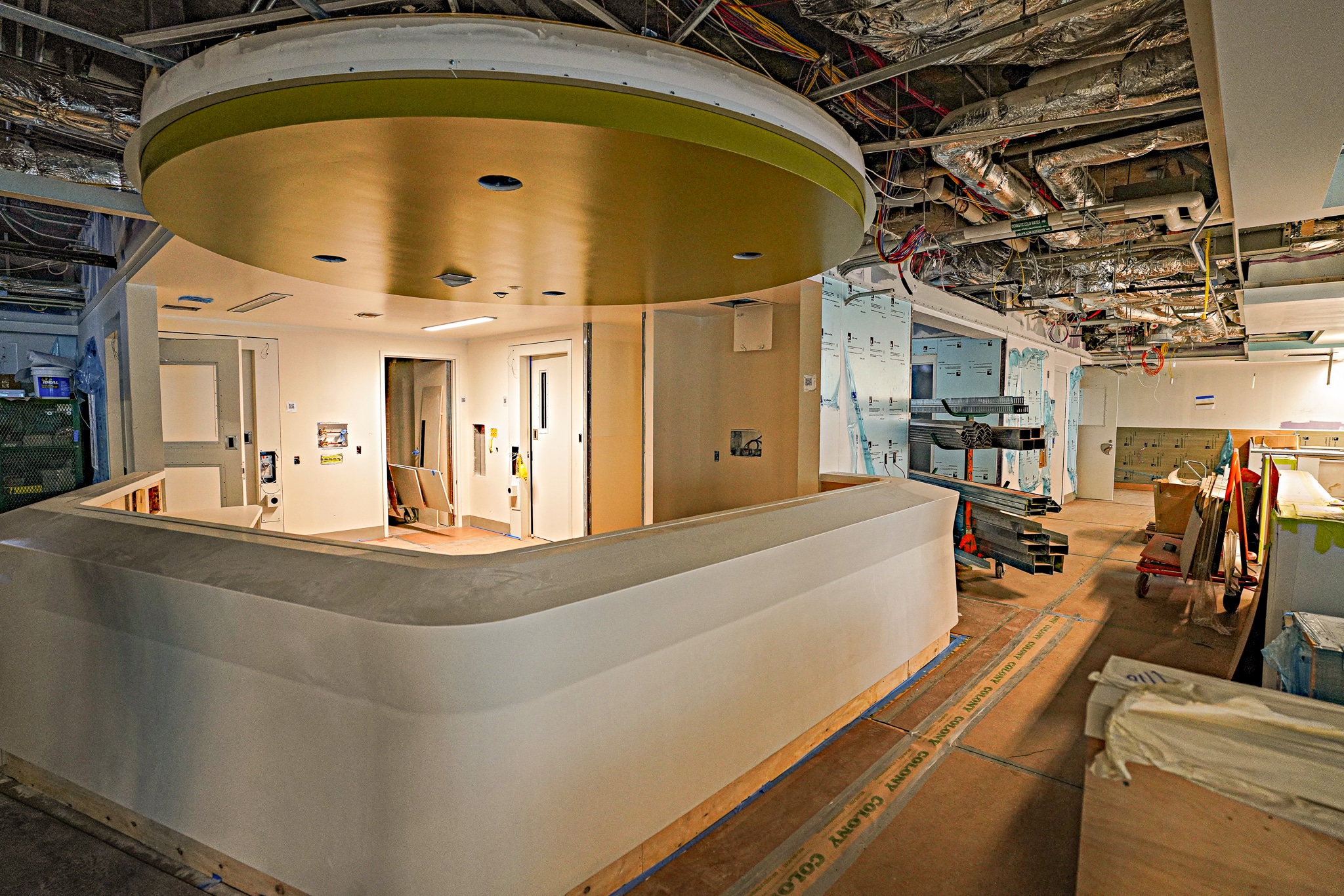
“What we envision for people in the jails on the island versus here, or in the borough based jails, are people who need frequent regular access to the specialty care that’s only available in a hospital,” Yang said. “Chemotherapy for example, regular infusions. The infusion itself will take 25-40 minutes depending on what’s going on. But the trip itself from Rikers can be nine hours. And what you do is you end up choosing between giving up law library, commissary, visitation, recreation, your own space to make that day long trip to a hospital and back for 20 minutes.”
Yang also stated that the hospital resources will be “infinitely” better than what is currently found on the island when construction is expected to be completed in 2025, which will even include a rooftop recreational space.
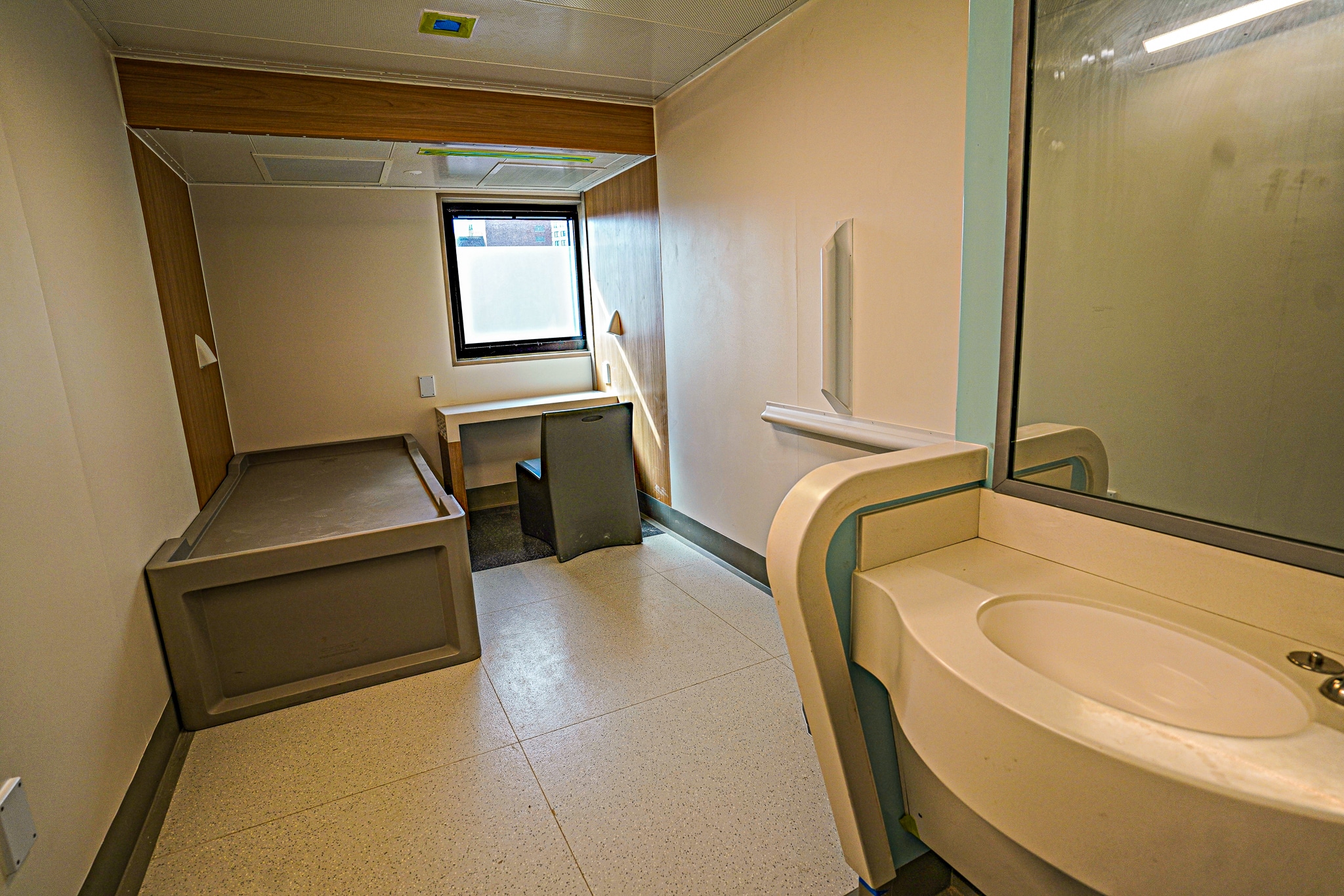
$14 million in funding
As part of the overhaul, the Adams administration also told amNewYork Metro that it will be allocating $14 million in funding to DOC programming, including trauma support, substance misuse initiatives, society reintegration efforts, education programs, and more.
According to DOC First Deputy Commissioner Francis Torres, the funds will go a long way toward helping rehabilitate offenders by creating steps to address trauma which the offenders themselves may have faced in their lives, and led to engaging in criminal behavior.
“What we see in persons assigned to our care, we’re looking at approximately 50% of individuals who have had trauma that result in a mental health diagnosis. And what we want to do is through the creation of Social Work, mental health and creative arts, therapies, we want to support their learning,” Torres explained. “So that we can actually capture what their needs and support services would be upon discharge and reintegration.”
Torres said that the creation of the programs began after a need for them was determined by the Division of Programs and Community Partnerships audited the current services, determining a need for improved inmate benefits. The new programs are expected to immediately go into effect when the funding is received on July 1, 2024, with expectations that they will also be implemented in borough-based jails if successful.
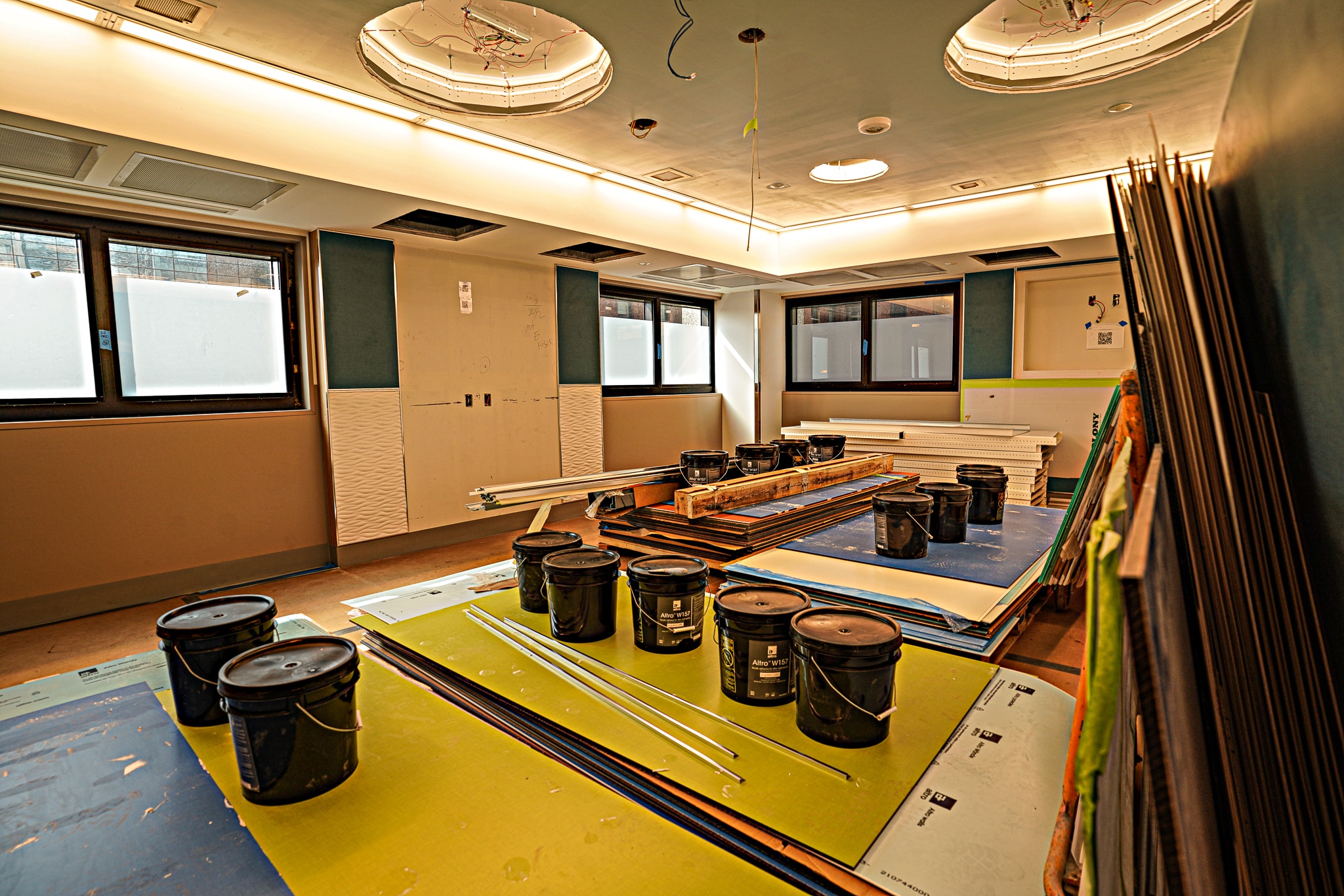
A post-jail Rikers
While the city says it is attempting to make the best use of the penal island while it is still active despite harsh rebuke from outspoken activists, the city Department of Environmental Protection (DEP) and the Mayor’s Office of Climate and Environmental Justice (MOCEJ) is weighing the possibility of the area being used to help the Big Apple with clean, renewable energy.
Releasing two studies from DEP and MOCEJ on March 4, the surveys have found that Rikers Island’s facilities could be repurposed as an alternative to wastewater infrastructure and renewable energy sources.
According to the DEP’s “Feasibility Study for a New Wastewater Resource Recovery Facility on Rikers Island,” a suggestion postulates the idea of creating a new state-of-the-art Wastewater Resource Recovery Facility on Rikers Island that would consolidate four existing facilities and cultivate a seamless development for DEP’s operations.
The MOCEJ’s “Renewable Rikers Feasibility Study Report,” found that Rikers Island provides a space to create a combination of solar and battery storage, offshore winter interconnections, and in doing so could create ways to achieve cost savings and emission reductions.
“While our commitment to the success of our jails is unwavering, we are also planning for the future of Rikers by releasing these studies that assess the feasibility of bringing renewable energy infrastructure to the Island,” Mayor Adams said.



